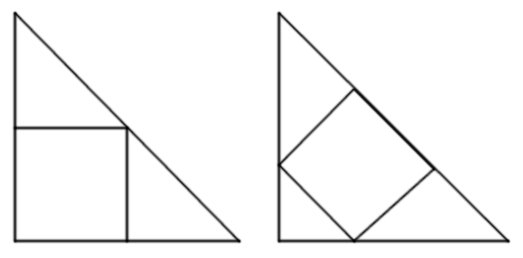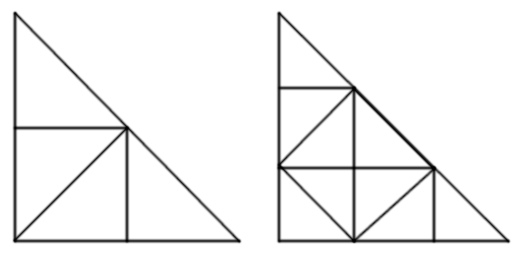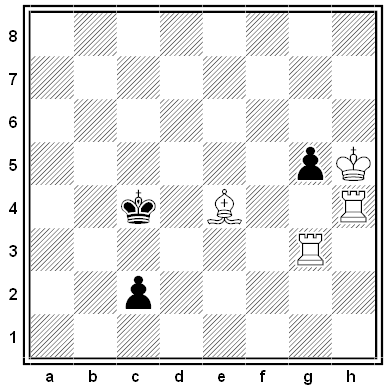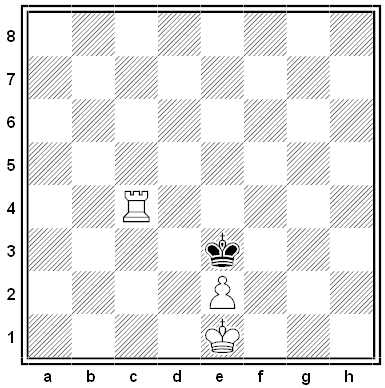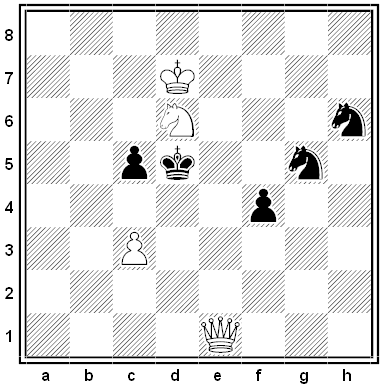A puzzle by Ezra Brown and James Tanton:
Three gnomes sit in a circle. An evil villain puts a hat on each gnome’s head. Each hat is either rouge or puce, the color chosen by the toss of a coin. Each gnome can see the color of his companions’ hats but not of his own.
At the villain’s signal, all three gnomes must speak at once, each either guessing the color of his own hat or saying “Pass.” If at least one of them guesses correctly and none guesses incorrectly, all three gnomes will live. But if any of them guesses incorrectly, or if all three pass, they’ll all die.
They may not communicate in any way during the game, but they can confer beforehand. How can they arrange a 75 percent chance that they’ll survive?
|
SelectClick for Answer |
Each gnome will pass unless he sees that both of his companions are wearing hats of the same color. In that case he will guess the opposite color. This produces a win in six of the eight possible arrangements of hats.
(Ezra Brown and James Tanton, “A Dozen Hat Problems,” Math Horizons 16:4 [April 2009], 22-25.)
|

